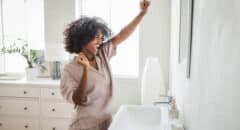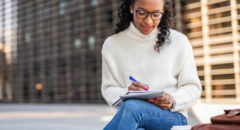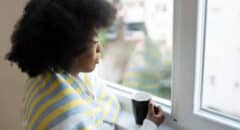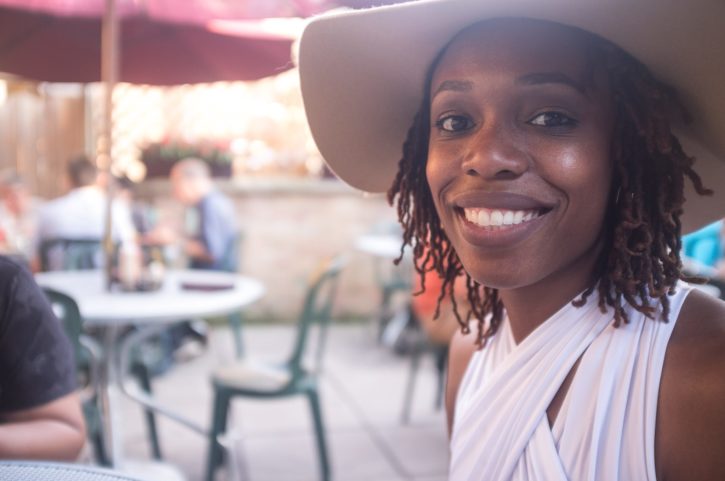
Sometimes all it takes is for one of us to say “we’re not ok and we need help” for the rest of us to step up and do the same. Kid Cudi’s recent Facebook post disclosing his suicidal tendencies and decision to enter into rehab gave many a second look at their own mental health status .
Most of us ask, “how are you doing?,” but how many of us are really good?
MUST READ: Black Boys, Suicide & Shame: What Can The Village Do?
The hashtag #YouGoodMan was created on Twitter by two friends, Dayna Lynn Nuckolls (@DaynaLNuckolls), artist and songwriter from Chicago, and @TheCosby, to address what’s really good with our Black men. Last Wednesday Dana Lynn suggested to her friend @TheCosby that they name the hashtag #YouOkBruh.
@TheCosby opted for #YouGoodMan and on October 5th the idea took off with a sea of posts and retweets.
Black men and their supporters have flooded the Twitter world with their honest posts supporting the #YouGoodMan movement.
BlackDoctor.org spoke with Dayna Lynn Nuckolls to learn the full story behind #YouGoodMan how do we continue asking #YouGoodMan from here.
BlackDoctor.org: What's your personal connection to a Black male mental health?
Dayna Lynn: My personal connection to Black male mental health is two-fold. Primarily, I am a Black mother raising a Black boy who, God willing, will eventually become a Black man. He's 4 years old. Daily, I fight back against the brand of masculinity that says that boys don’t cry or express any feelings other than anger or aggression or sarcasm. I’m responsible for helping shape his capacity for emotional resilience in the face of life’s inevitable challenges, especially those challenges tailored just for Black men. And it starts this early, empowering him to honor his emotions, name his feelings, and develop relationships with other men that are safe spaces for vulnerability. I'm countering the toxic masculinity that feeds and disguises depression by making sure he witnesses empowered men living emotionally intelligent lives.
 Secondarily, I am Black woman who is a lover of Black men. My survival, safety, and wellbeing is often predicated upon the ability of the Black men in my life to mentally and emotionally cope in healthy ways. When I was pregnant, and even after my son was born, I watched my son’s father cycle in and out of depressive episodes that manifested in him punching walls, self medicating with weed and alcohol, isolating himself, and being completely emotionally unavailable. It was devastating for me.
Secondarily, I am Black woman who is a lover of Black men. My survival, safety, and wellbeing is often predicated upon the ability of the Black men in my life to mentally and emotionally cope in healthy ways. When I was pregnant, and even after my son was born, I watched my son’s father cycle in and out of depressive episodes that manifested in him punching walls, self medicating with weed and alcohol, isolating himself, and being completely emotionally unavailable. It was devastating for me.
More recently, I have been having conversations with a Black man very close to me. We’ve been discussing the trauma and abuse he experienced as a child and the effects that it has had on his life and relationships as an adult. He has never gotten professional help even though those experiences have negatively affected his ability to cope as an adult.
BlackDoctor.org: What prompted you to start the dialogue on Twitter that night? It seems based on the retweets and stuff you were posting around that time, something was bubbling inside of you.
Dayna Lynn: This has always been a subject near and dear to my heart. But as I mentioned before, I had just been having conversations about mental health with a close friend. Just the mention of the word mental health, or depression or anxiety, sends many Black men into a tailspin. And so, to see Kid Cudi use those words and name his demons, it triggered what I knew deep down: Black men must give themselves permission to speak honestly about their emotional experiences with no fear of judgement. They possess the power to destroy the social contracts that bind them to limited and repressive modes of emotional expression.
BlackDoctor.org: Since you posted this hashtag what's been your biggest surprise about its popularity ?
Dayna Lynn: The biggest surprise has been how willing men have been to share their experiences. It can be so hard for men to speak about their emotional struggles when the language around mental health can be triggering for them. Black men have a fraught history with the mental health care system that ties into The New Jim Crow and aggressive, racially biased policing. Despite all of that, they have made themselves vulnerable. I guess all they needed was the opportunity and space to open up.
BlackDoctor.org: Any plans to continue this conversation elsewhere?
Dayna Lynn: Absolutely. Once we saw how this thing was gaining traction @TheCosby and I began collaborating and brainstorming. We are developing live #YouGoodMan events in our respective locales. He’s out east and I’m in the midwest. I’ll be curating an event alongside Stacy Patrice of Soul Healing Relationships™ on Saturday October 22, 2016 at Mana Contemporary in Chicago, IL. We’ll be bringing the folks out and setting the stage, then passing the baton to the men to get down with the get down on some open, honest and confidential conversation. You can find out more info at http://yougoodmanchicago.eventbrite.com.
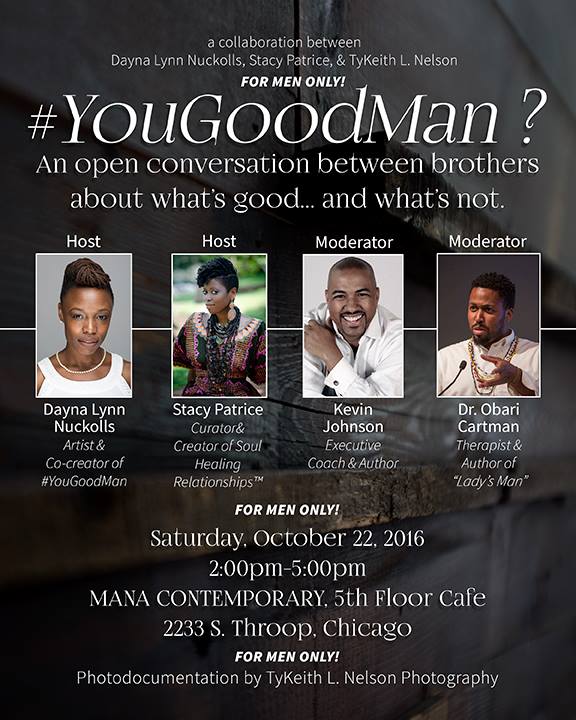
@TheCosby works with an organization called Words Beats Life. It’s a hip-hop advocacy and education organization based in DC. He will bring them on board for the event he’ll be curating in DMV. And of course, we’ve got more in store.
BlackDoctor.org: As a Black woman what do you see is the biggest barrier to Black male mental wellness?
Dayna Lynn: I think the biggest barrier to Black male mental and emotional wellness is the social contract that defines how men must relate to and communicate with each other. That’s what #YouGoodMan is meant to deconstruct. It’s saying that you have permission to breach and cancel that contract by answering that question honestly. As Kid Cudi proved, all it takes is one man to be honest. It’s a big barrier, but not insurmountable. #YouGoodMan is proof.
Continue to follow and contribute to this important conversation at #YouGoodMan. To join the men-only #YouGoodMan live event in Chicago on October 22, 2016, click here.




